What Are Sleep Cycles
Have you wondered why some nights are full of dreams and others are not? Or have you ever thought about whether your brain is resting while you are asleep? The brain waves are made up of several sensor waves alpha, beta, gamma and theta. Some of your questions may be answered if you understand the stages of sleep. Sleep has a cycle of different stages. A normal adult requires 6-8 hours of uninterrupted sleep to carry out a normal routine the next day. The duration varies with age.
Stage 1
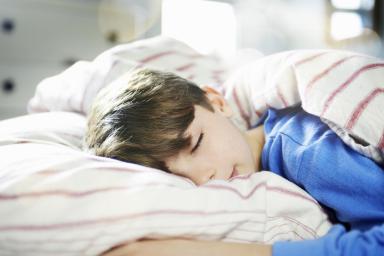 The beginning stage of sleep is when we just drifting off and experience something similar to day dreaming is when we go through alpha waves and theta waves. These waves vary with people. Some may experience more of these than others, i.e., a state in which some people may experience even through the entire day. People who engage in deep prayers or meditation often experience the resting phase, Alpha. During this phase, people often feel like they are free-falling after which sudden contractions of muscles can be felt. You may also hear noises like the phone or alarm ringing. These are called hypnogogic hallucinations. Following this, we enter the Theta phase which lasts for 5-10 minutes and is a thin line between being asleep and awake. Research shows that it takes 7 minutes for a normal sleeper to fall asleep. This may vary with person.
The beginning stage of sleep is when we just drifting off and experience something similar to day dreaming is when we go through alpha waves and theta waves. These waves vary with people. Some may experience more of these than others, i.e., a state in which some people may experience even through the entire day. People who engage in deep prayers or meditation often experience the resting phase, Alpha. During this phase, people often feel like they are free-falling after which sudden contractions of muscles can be felt. You may also hear noises like the phone or alarm ringing. These are called hypnogogic hallucinations. Following this, we enter the Theta phase which lasts for 5-10 minutes and is a thin line between being asleep and awake. Research shows that it takes 7 minutes for a normal sleeper to fall asleep. This may vary with person.
Stage 2
This is the stage when the brain starts sending short rhythmic, rapid signals called the Sleep Spindles to help the mind and body disconnect from its surroundings. The body temperature and heartbeat rate begin to reduce and this period lasts for around 20 minutes.
Stage 3
This is the intermediate phase amidst light sleep and deep sleep where the brain begins to send Delta waves through the body.
Stage 4
This is known as the Delta Sleep since these Delta waves are fully flourished during this stage. This is the phase where body energy is replenished, stress is reduced, muscles are relaxed, hormones are released and tissue repair and growth occurs. This stage lasts for about 30 minutes. Sleep-walking & bed-wetting occur during this stage of sleep.
Stage 5: REM (Rapid Eye Movement)
This stage is commonly called Paradoxical sleep or REM sleep with reference to the fact that this is the deepest stage of sleep where the brain and body systems increase their activity and the voluntary muscles like the legs, arms, etc. begin to relax or paralyze. This is the phase where the dream actually occurs. This state of paralysation occurs to protect you against involuntarily injuring yourself while you are in your dream which is why you actually can’t run or escape in your dream even if you really wanted to. At this stage your body gets as much deep sleep as possible and this generally occurs 90 minutes after falling asleep.
Cycles
The stages of sleep do not generally proceed through all sequences in order. We start with stage 1 and advance to the next three stages, after which stages 3 and 2 are repeated followed by REM sleep. When the first REM is complete, stage 2 reoccurs and the cycle continues. We go through 4-5 REM sleeps in one night. However, the length of each REM cycle increases as we proceed when compared to the previous. If you are thinking, your dream is taking time. Well then, it is!

 Subscribe Now
Subscribe Now

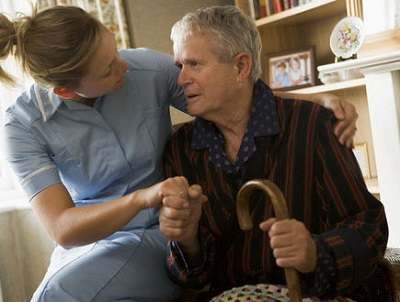 Sleep may be disrupted due to certain mild or serious medical conditions or symptoms of certain conditions. Some of the health disorders that lead to insomnia are nasal allergies, gastrointestinal issues, hyperthyroidism, arthritis, asthma, Parkinson’s disease, chronic pains and lower back pains. Medications are taken for insomnia caused by these disorders.
Sleep may be disrupted due to certain mild or serious medical conditions or symptoms of certain conditions. Some of the health disorders that lead to insomnia are nasal allergies, gastrointestinal issues, hyperthyroidism, arthritis, asthma, Parkinson’s disease, chronic pains and lower back pains. Medications are taken for insomnia caused by these disorders.
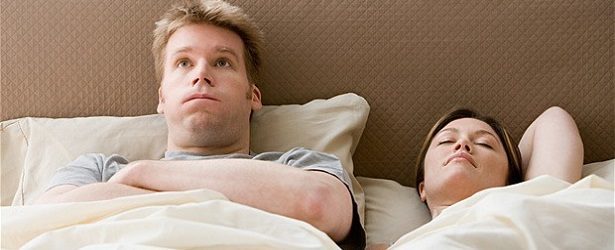
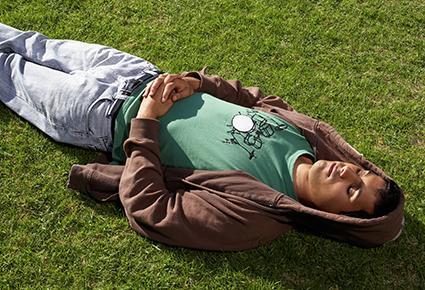 Progressive Muscle Relaxation (PMR)
Progressive Muscle Relaxation (PMR) Imagine
Imagine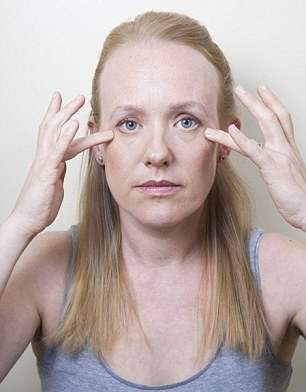 Practice a trick
Practice a trick
 Many of you may have experienced falling asleep right after the heavy turkey that was served during lunch for thanksgiving! The reason is not because of the overload in your stomach but because of the turkey which is rich in tryptophan.
Many of you may have experienced falling asleep right after the heavy turkey that was served during lunch for thanksgiving! The reason is not because of the overload in your stomach but because of the turkey which is rich in tryptophan. Thus, consuming foods that contain tryptophan alone will not suffice. It needs to be consumed along with a rich source of carbohydrates in order to put this natural remedy to work! Now that we know the kind of food that we should eat to trigger sleep, it is equally important to know what we ought not to eat before going to sleep.
Thus, consuming foods that contain tryptophan alone will not suffice. It needs to be consumed along with a rich source of carbohydrates in order to put this natural remedy to work! Now that we know the kind of food that we should eat to trigger sleep, it is equally important to know what we ought not to eat before going to sleep.
 People experience different kinds of Insomnia. Some find it difficult to fall asleep, others have difficulties in sleeping at a stretch through the night and yet others wake up during early hours of morning or maybe even during the night and find it difficult to go back to sleep. Poor sleep through the night could affect the whole day keeping one feeling dizzy and tired through the entire day causing a feeling of restlessness which disturbs the day’s work. All this leads to frustration and irritability which finally ends up in
People experience different kinds of Insomnia. Some find it difficult to fall asleep, others have difficulties in sleeping at a stretch through the night and yet others wake up during early hours of morning or maybe even during the night and find it difficult to go back to sleep. Poor sleep through the night could affect the whole day keeping one feeling dizzy and tired through the entire day causing a feeling of restlessness which disturbs the day’s work. All this leads to frustration and irritability which finally ends up in  Though, Insomnia could be acquired by anybody, certain groups of people are at a higher risk, like, those working at late night shifts, those with a history of any kind of mental disorder, those with high emotional stress and those who are above the age of 60. However, Insomnia can be prevented by sleeping and waking up at the same time every day to make it a habit and by avoiding caffeine. It is also important not to exercise just before sleeping which arouses the body rather than giving it a calm environment to sleep. Though treatments are available for to recover from this condition, many people use sleeping tablets and sedatives to get rid of the condition as a short-term use. However, it is important to first identify the cause for insomnia and the treatment for these causes need to be addressed instead of taking sleeping pills which will have a long-term effect of the body.
Though, Insomnia could be acquired by anybody, certain groups of people are at a higher risk, like, those working at late night shifts, those with a history of any kind of mental disorder, those with high emotional stress and those who are above the age of 60. However, Insomnia can be prevented by sleeping and waking up at the same time every day to make it a habit and by avoiding caffeine. It is also important not to exercise just before sleeping which arouses the body rather than giving it a calm environment to sleep. Though treatments are available for to recover from this condition, many people use sleeping tablets and sedatives to get rid of the condition as a short-term use. However, it is important to first identify the cause for insomnia and the treatment for these causes need to be addressed instead of taking sleeping pills which will have a long-term effect of the body.
 Establishing a set time for bedtime and when you get up seven days a week.
Establishing a set time for bedtime and when you get up seven days a week.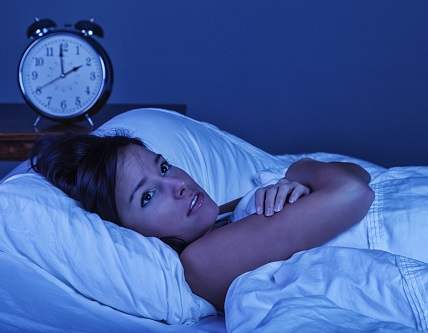 One of the problems with sleep hygiene is that it gives you a list of things to do but it does not really systematically take you through the process of getting them done. For example it recommends that you achieve a good frame of mind before climbing under the covers but it falls short of telling you how to achieve that.
One of the problems with sleep hygiene is that it gives you a list of things to do but it does not really systematically take you through the process of getting them done. For example it recommends that you achieve a good frame of mind before climbing under the covers but it falls short of telling you how to achieve that.
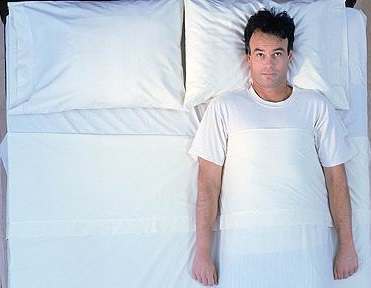 Insomnia can affect just about anyone, but women are more prone to struggle with this condition than their counterparts. Stress is one of the major underlying causes of what is considered temporary sleeplessness and if this is left untreated then it can become severe insomnia. Severe insomnia usually comes about after an individual experiences some type of illness or medical condition. Some of which may include chronic pain, severe tiredness , stomach problems, serious mental conditions and
Insomnia can affect just about anyone, but women are more prone to struggle with this condition than their counterparts. Stress is one of the major underlying causes of what is considered temporary sleeplessness and if this is left untreated then it can become severe insomnia. Severe insomnia usually comes about after an individual experiences some type of illness or medical condition. Some of which may include chronic pain, severe tiredness , stomach problems, serious mental conditions and  In light of this, medical cannabis has been hailed a viable alternative in the treatment of insomnia. Interestingly,many patients have confirmed that medical cannabis is more effective than prescription drugs, it is not addictive and no report of any deaths as a result of its prolonged use has been reported so far. This is really worth considering if you are suffering from insomnia because it comes with the possibility of relief without an exhaustive list of side effects and that in this day and age is really soothing music to the ears.
In light of this, medical cannabis has been hailed a viable alternative in the treatment of insomnia. Interestingly,many patients have confirmed that medical cannabis is more effective than prescription drugs, it is not addictive and no report of any deaths as a result of its prolonged use has been reported so far. This is really worth considering if you are suffering from insomnia because it comes with the possibility of relief without an exhaustive list of side effects and that in this day and age is really soothing music to the ears.
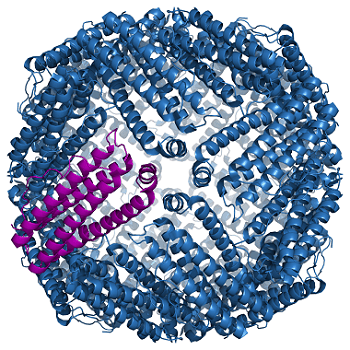 The following is based on information garnered from case studies done in Japan. In case study A, a patient was diagnosed with depression and the doctor administered a particular kind of medication. After a one year period, the patient’s condition improved significantly.Similarly, in case study B, a patient exhibited symptoms of
The following is based on information garnered from case studies done in Japan. In case study A, a patient was diagnosed with depression and the doctor administered a particular kind of medication. After a one year period, the patient’s condition improved significantly.Similarly, in case study B, a patient exhibited symptoms of 

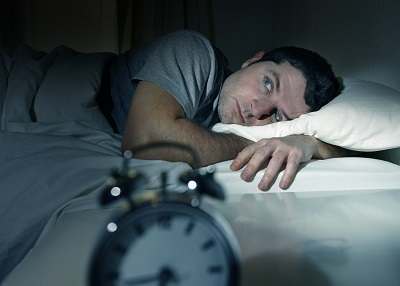 Insomnia refers to the inability to sleep or sleep peacefully for extended periods. Medically,
Insomnia refers to the inability to sleep or sleep peacefully for extended periods. Medically,  Nevertheless, this is good news for women globally since menopause can in some cases have a debilitating effect on women the world over. Menopause by itself is already terrible and menopause coupled with insomnia is beyond devastating, but luckily
Nevertheless, this is good news for women globally since menopause can in some cases have a debilitating effect on women the world over. Menopause by itself is already terrible and menopause coupled with insomnia is beyond devastating, but luckily 
 We have seen a shift from doing things that would drive our heart rates up to an overall sedentary and semi sedentary lifestyle. In fact, over the past few years we have witnessed a shift from doing high energy activities outdoors to low level activities, that require us to be solitary and while there is a drive to promote exercise it is often viewed as a chore and in some cases quite justifiably so, because many of the exercise regimes today are brutal, rigorous and unbelievably intense. However, this does not have to be the case and here is an alternative:
We have seen a shift from doing things that would drive our heart rates up to an overall sedentary and semi sedentary lifestyle. In fact, over the past few years we have witnessed a shift from doing high energy activities outdoors to low level activities, that require us to be solitary and while there is a drive to promote exercise it is often viewed as a chore and in some cases quite justifiably so, because many of the exercise regimes today are brutal, rigorous and unbelievably intense. However, this does not have to be the case and here is an alternative: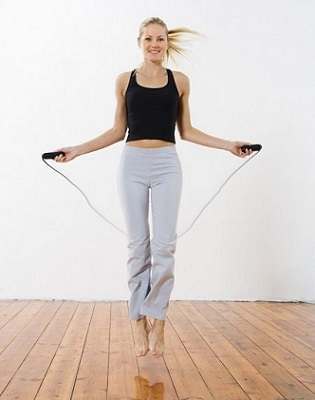 Do Not Engage in High Intensity Workouts
Do Not Engage in High Intensity Workouts